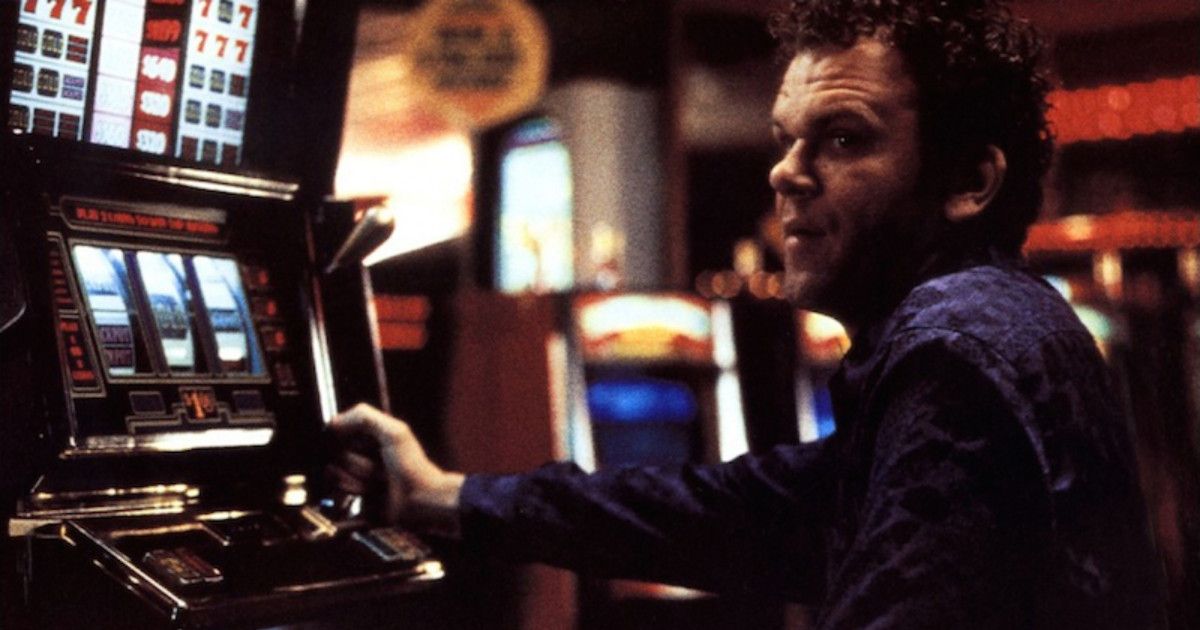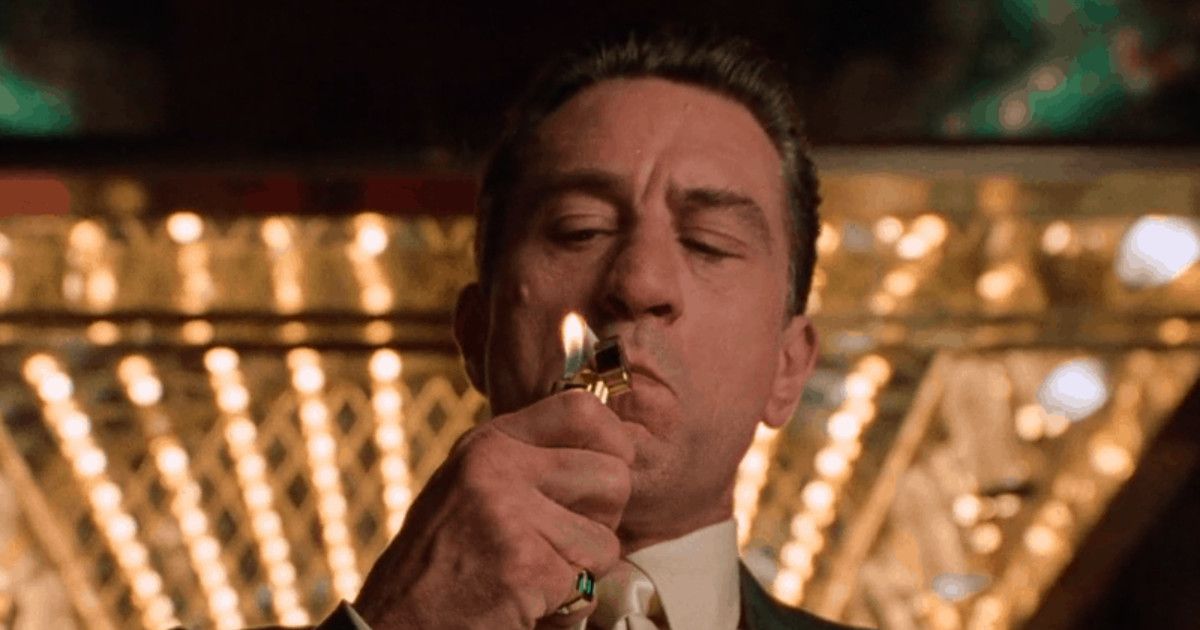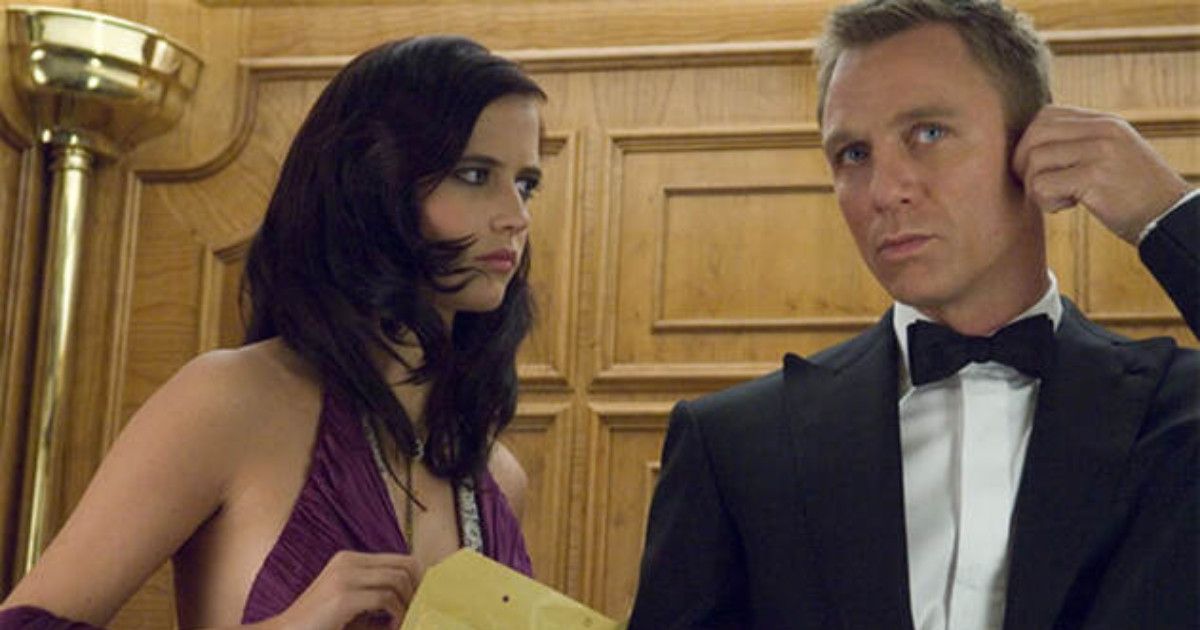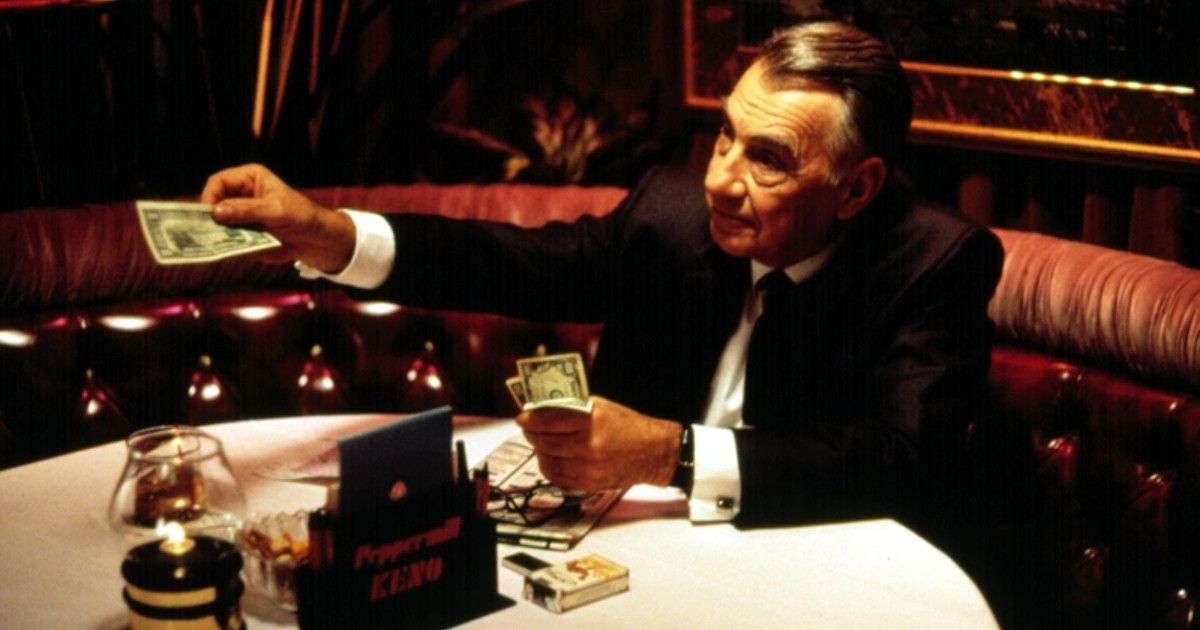American filmmaker Paul Thomas Anderson is considered an auteur of the industry, with some of the most acclaimed films of the last thirty years under his directorial belt. Projects such as Boogie Nights (1997) and There Will Be Blood (2007) are among the most popular titles of their respective decades, with both films playing part in rendering PTA a household name.
Before he made it big with Boogie Nights, though, Anderson released his directorial debut just one year prior: Hard Eight (1996). It stars John C. Reilly (who would go on to work with Anderson twice more) and Phillip Baker Hall (again, a future-frequent collaborator of Anderson), who share a father-son dynamic as the latter takes the former under his wing as a professional gambler in Las Vegas.
The film also features the likes of Gwyneth Paltrow, Samuel L. Jackson, and Phillip Seymour Hoffman — again, that last performer would go on to work with Anderson on multiple occasions. Paltrow plays Reilly’s love interest who pushes the plot to greater standards of genre conventions — here, the category is crime. Meanwhile, Jackson shows up as the film’s antagonist, a fellow gambler named Jimmy.
Phillip Seymour Hoffman, on the other hand, appears in a singular scene opposite Phillip Baker Hall’s character, Sydney. And he arguably steals the entire movie in terms of memorable performances. If you haven’t seen Hard Eight, it’s worth checking out almost entirely for Hoffman alone. But, speaking of Hall’s character, Sydney: it is worth noting that the original name of the film would have rendered him the titular character.
And then, speaking of original titles: the project as a whole it was first composed as a short film called Cigarettes & Coffee (1993). It also features Phillip Baker Hall as the senior gambler, but the homeless man he has a conversation with over cigarettes and coffee was played by a lesser-known performer named Kirk Baltz — not John C. Reilly.
After Hard Eight, Anderson found international success with Boogie Nights, then replicated that acclaim a decade down the line with There Will Be Blood. In between those two films, though, PTA had two releases: Magnolia (1999) and Punch-Drunk Love (2002). And since, he’s put out four projects: The Master (2012), Inherent Vice (2014), Phantom Thread (2017), and Licorice Pizza (2021).
And they all released to reverence from critics in their own rights, albeit with varying degrees of success within theaters. Hard Eight received decent-enough impressions from critics, but even still, it was released before Anderson truly made a name for himself. And thus, it's gone down as one of the most underrated films of his career — perhaps of gambling films in general, in fact.
Critically Acclaimed Gambling Movies
There are a couple primary pieces of criteria when calling something critically acclaimed: review scores from critics, obviously, on top of accolades at major award associations. There is one exception there, and it’s worth getting into out of the gate because, well, it’s among the most popular gambling movies ever made: Casino (1995), directed by Martin Scorsese.
It stars Robert De Niro, and it stands out as a bit of an anomaly as it holds a somewhat middling approval rating of 79% approval rating on Rotten Tomatoes, and didn’t exactly make waves at the box office. But still, Casino does have a 93% on the same consensus website based on audience reviews, and received nominations at a couple major award associations — among which included a Best Supporting Actress win for Sharon Stone at the Golden Globes.
And, again: from a modern perspective, it’s a highly-revered and well-known gambling movie, thanks in large part to the name value that Scorsese and De Niro provide in their collaborations. On the opposite end of the critical spectrum, The Hustler (1961) was well-acclaimed upon release unlike few films of its ilk, and garnered nine total nominations at the Academy Awards.
No debating that’s underrated, even when accounting for its $7.6 million garnered on a $2.1 million budget. Its sequel The Color of Money (1986) — directed by Martin Scorsese one decade before he helmed Casino — also garnered great reviews from critics, and received a few nominations at the Oscars. Among those was a Best Actor win for Newman, who reprised his role from The Hustler as Edward “Fast Eddie” Nelson.
And two other gambling films from around that time period are The Gambler (1974) and California Split (1974). The former can definitely be considered underrated to a degree — however, it features one of the most acclaimed performances of James Caan’s career, with a nomination at the Golden Globes for Best Actor as the titular character.
And with California Split: it featured brilliant direction from Robert Altman, notable acting efforts from George Segal and Elliot Gould, and for the most part, critics had positive things to say. However, they were unanimous in their love for Croupier (1998). It garnered international acclaim for English actor Clive Owen, and from a technical standpoint, it’s one of the best gambling movies ever made. It was disqualified from contention at the Oscars in its year, so that shouldn’t count against it.
But another of these films that did receive nominations across the board of award associations was Molly’s Game (2017). In screenwriter Aaron Sorkin’s directorial debut, his screenplay was recognized by the Oscars, the BAFTAs, and the Golden Globes. And of course, Adam Sandler shocked the world in Uncut Gems (2019), written and directed by Josh and Benny Safdie. In perhaps the best role of his career, Sandler plays a gambling addict who owns a jewelry store in the Diamond District of New York City.
There are several other films worth noting here, like The Cincinnati Kid (1965), The Sting (1973), House of Games (1987), Bugsy (1991), Mississippi Grind (2015), Win It All (2017), and The Card Counter (2021). All those films managed to rake in impressive numbers at the box office, positive thoughts from critics, or accolades at major award associations. In some cases, they managed all three of those feats. However, there are plenty of gambling films still left to touch on, and in terms of popularity, these projects have much more name value from a contemporary standpoint.
Other Well-Known Gambling Movies
Not every movie set in Vegas (or other casinos) is going to get raving reviews from critics. However, that doesn’t mean that the respective title can classify as underrated, even if it’s known by modern standards as a project of legitimate quality. Positive results at the box office can result in great ratings from audiences, if not just vogue in general.
Oddly enough — despite the name value from a contemporary standpoint — the original Ocean’s 11 (1960) with members of the Rat Pack received relatively dismissive reviews from critics. It wasn’t particularly successful from a commercial perspective, either. Its Steven Soderbergh remake, however, with the likes of George Clooney, Brad Pitt, and Matt Damon, was regarded by critics to an appreciable degree, and raked in even more impressive numbers in ticket sales.
The same can mostly be said for its sequels Ocean’s Twelve (2004) and Ocean’s Thirteen (2007) with the same director and cast — neither were nearly as revered, but they still made tremendous money at the box office. Those are among the most popular gambling movies ever made, as is a particular entry in the 007 franchise of James Bond-led spy films: Casino Royale (2006).
Much like the Ocean’s Eleven remake, it’s one of the few films of its kind that walked away as a massive success in both realms at hand, critical and commercial. It holds a whopping 94% approval rating on critical consensus website Rotten Tomatoes, and made $616.5 million at the worldwide box office. Granted, it had the biggest budget of any gambling movie ever made with $150 million, but still. It quadrupled that number in ticket sales.
Just a couple of years later, 21 (2008) with Kevin Spacey also made great money in theaters, but it failed to hit home with critics in just about any imaginable fashion. Meanwhile, The Hangover (2009) remains one of the most popular movies ever made that revolves in any form around gambling, poker, or Las Vegas life in general.
It raked in $470 million on a $35 million budget — pretty impressive numbers from director Todd Phillips. Of course, its star-studded cast of Bradley Cooper, Ed Helms, and Zach Galifianakis helped in the quality department, as well, considering their respectively hilarious efforts greatly contributed to its positive reviews from critics and fans alike.
Then, there are two projects that for the most part failed to resonate with either critics or moviegoers: the first being Vegas Vacation (1997). It was a complete failure in both respects, and is widely considered the worst of the famous, Chevy Chase-led Vacation franchise — and that includes the 2015 remake. Nothing more needs to be said in that regard.
Finally, there's Rounders (1998), directed by John Dahl while starring Matt Damon and Edward Norton. This stands out in anomalous fashion as it's perhaps the only film of its gambling ilk that has gone down as a true cult classic. Which means, in other words, that it’s hard to qualify it as underrated, as it’s essentially known for being such. After a certain extent, you can only claim something is underappreciated to a certain extent before it becomes relevant overall. That’s where Hard Eight comes into play.
Why Hard Eight Stands Out
Barring a select few filmmakers like Steven Soderbergh (with his Ocean’s franchise) and Martin Scorsese (with both The Color of Money and Casino), there’s an argument that Paul Thomas Anderson is the most talented director to ever helm a gambling film.
It has a certain wit, charm, and style that epitomizes the atmosphere of Vegas. PTA forces you to home in on people and players that normally wouldn’t catch your eye amid raucous sounds and addictive games of cards, roulette, and slot machines. And that creates an even more personal and dynamic connection to the main characters, their dialogue, and their stories.
But it’s also just an intelligent script, constantly making the audience think — why does Sydney initially take an interest in John? How did Sydney know to approach Jimmy’s car near the film’s final act? Why did Jimmy call Sydney out there in the first place, and why did Sydney actually shoot John’s father before the film took place? These are all answered before the project ends, but these questions are also constantly proposed to the characters themselves.
And they approach each respective situation, each question, each riddle as if they were playing a game in Vegas. They don their best poker face and go all in when attempting to convince another character that something might be true. And outside the prospect of gambling permeating itself into every scene, Anderson and his players also create their own, personalized world that results in a thrilling neo-noir journey through Vegas.
But a simple review of the film, sheerly stating its quality isn’t what will showcase its underrated nature. The fact of the matter is that with Hard Eight, Anderson didn’t receive a single nomination from any award ceremony aside from the Independent Spirit Awards. Sure, this was his directorial debut, but plenty of filmmaking firsts were nominated at major award associations throughout Hollywood history.
Plus, it didn’t even make a million dollars despite a $3 million budget. Its 82% approval rating on Rotten Tomatoes suggests it was well-received upon release, but even that number is a little too low to truly convey the quality of Hard Eight. And none of that is to even mention the fact that modern viewers don’t discuss this project anywhere near as much as Casino, or even Rounders from the same time period.
If Boogie Nights is the go-to motion picture that revolves around the pornography business, and There Will Be Blood will forever go down as the definitive film about the oil industry, then Hard Eight should also be recognized as the most essential gambling movie to ever hit the silver screen. But in the end, it mostly gets thrown to the public wayside, and for that, it might forever remain underrated.




